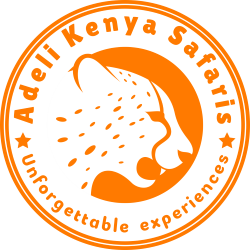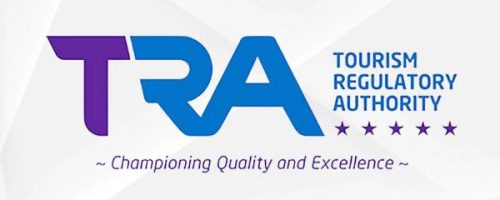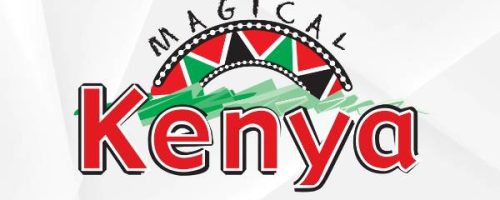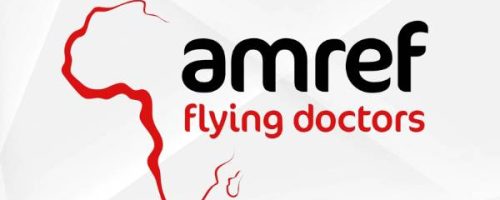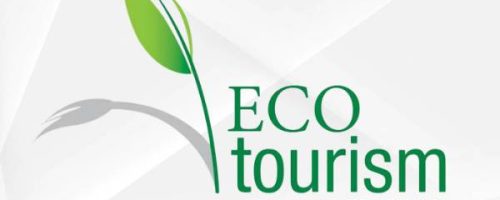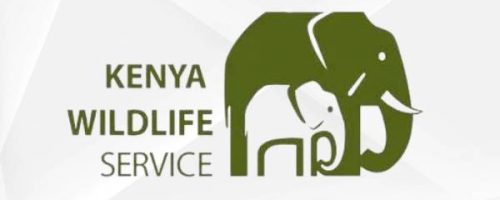| Name of the facility | Ol Donyo Lodge |
|---|---|
| Certification Achieved | Silver |
| Year opened | 2008 |
| Tourism region | Tsavo/Amboseli |
| County | Kajiado |
| Address | 28793-00502, Nairobi Map It |
| Telephone/Mobile | 0737402044 |
| [email protected] | |
| Website | greatplainsconservation.com |
| Facility Notes | Ol Donyo Lodge is located in Mbirikani Group Ranch. The facility lies on 600 acres of land under a lease period of 17 years which is renewable. The Lodge is specifically located on Global Positioning System (GPS) Coordinates, Latitude: 02o 20.07’S and Longitude: 37o 16.30’ E. It has 10 guest tents with a bed capacity of 20 visitors and a total work force of 60 employees. The Mbirikani Group Ranch is mainly a conservation area protected as a game corridor by the Big Life Foundation and Great Plains Conservation. This corridor is important for the safe passage of wildlife between Tsavo and Amboseli National Parks. The Masai in this area use the land for grazing their cattle. Surrounding the group ranch is also conservation areas apart from Kimana which has also been mostly subdivided for farming. |
| Energy management | The facility’s main source of power is solar energy fixed with power inverter battery system. The lodge has solar water heater for heating water in the guest room, kitchen. In addition, there are four back up kuni boilers. Liquefied petroleum gas (LPG) is used for cooking both at the guests and staff quarters. Energy saving bulbs are installed throughout for energy conservation. Staff are sensitized on energy conservation through departmental briefings. |
| Environmental management | Ol Donyo Lodge is guided by its environmental policy which emphasizes the lodge commitment to environmentally friendly operations, sustainable practices and minimizing impact to the environment as much as possible. It also indicates commitment to legal compliance and community development. The facility has undertaken an annual self-Environmental Audit (EA) as required by EMCA 1999 (Environmental Management and Co-ordination Act.) |
| Chemical use | The lodge uses biodegradable bathroom amenities in the guest rooms, Diesel is stored in a 4500 liters underground tank. |
| Conservation Criteria | |
| Community Criteria | |
| Solid waste management | Waste separation is conducted at the source, and the bins are clearly labeled. Plastic, glass and metallic waste are put in a waste holding area waiting for disposal via Great Plains head offices to recycling companies in Nairobi. Drinking water is served to guests in jugs so as to reduce on plastic waste |
| Water management | Main source of water for the lodge is obtained from Kajiado County. It is transported to the facility every day by bowser with a capacity of 16000 liters. It is then stored in a 2000-liter reservoir and supplied throughout the lodge via gravity. The lodge has a reverse osmosis water treatment for purifying drinking water. This has reduced on need to buy bottled water consequently reducing on plastic waste generation. The guest tents are installed with low shower filter heads and lift taps to reduce and monitor water use.The guest tents have dual flush toilet cisterns which reduce on the amount of water consumed per flush. Drip irrigation has been installed on the facility kitchen garden to reduce on water consumption |
| Visitor communication & education | Guests are briefed upon arrival on the lodge’s operations and environmental values. The guest tents are equipped with room information folders to brief the visitors on environmental conservation activities and initiatives. The lodge has a resource area (located at the main lounge) equipped with Publications such as Africa Geographic magazines, Books on Kenya, Birds of Kenya, mammals and Big Life Foundation projects |
| Pollution | Lighting at night, within the facility, is done through the use of low light emitting bulbs which reduce on light pollution. The kitchen is properly ventilated, aimed at enhancing the work conditions of the staff |
| Environmental conservation | The lodge offers low impact activities such as nature walks, bird watching, walking/hiking, biking, horse riding and game drives. Ol Donyo Lodge, through Great Plains Conservation (GPC), significantly supports Big Life Foundation which handles all conservation projects in Mbirikani Group Ranch and Chyulu Hills conservation area. |
| Waste water management | Effluent from the guest and staff kitchen flows through a grease trap to filter out oils and grease before draining into a soak pit. Grey waste water from the laundry, guest rooms and staff quarters is managed via soak pits. Water effluent sample tests are conducted in compliance with Environmental Management and Coordination (Water Quality) Regulations of 2006. |
| Purchasing and supplies | The facility purchases its products in bulk to reduce on packaging; fruits and vegetables are packed in re-usable crates whereas meat is packaged in freezers. |
| Employment and remuneration/staff welfare | Approximately 70% of the staff are from the local Masai community. Staff benefits include food, uniform, entertainment center, transport and accommodation. Staff accommodation is well maintained i.e. clean and well kept .There is a staff welfare committee which handles and addresses staff issues to the management. |
| Staff education, communication and awareness training | The lodge has in house trainings for its staff. The lodge has notice boards fixed within for staff communication. Employees are sensitized and briefed during departmental/daily/monthly meetings. |
| Cultural preservation and promotion/protection of local sites | The lodge contracts a local Masai dance group to perform cultural dance on request.Guests are offered a trip to the village to experience the Masai culture. |
| Benefits to local community/community empowerment | The lodge purchases locally where possible. For instance, goat meat, maize and potatoes for staff meals are bought locally. All community projects are run by Big Life Foundation and the lodge. The lodge organizes village visits for clients to enhance their cultural experience and knowledge on Masai community. $20 is charged per guest and the proceeds go directly to the community. |
| Cultural Criteria | |
| Health and safety | The lodge has a healthy and safety policy committed to compliance with relevant health and safety regulations, minimizing injuries and illness, communication to staff and visitors for continual improvement. The lodge has conducted a health and safety audit in compliance with Occupational Safety and Health Act 2007. The facility has conducted medical check-ups for food and beverage handlers to ascertain their health fitness in compliances with Food, Drugs, and Chemical substances Act. Cap 254.The facility has a team of staff trained on first aid and fire-fighting skills. The lodge has an equipped medical first aid kit. Additionally, all the guide vehicles are equipped with first aid boxes. The lodge is subscribed to AMREF Flying Doctors Service for emergencies evacuations. Firefighting equipment including, fire extinguishers, fire blanket in the kitchen, are serviced and strategically placed within the facility. The facility provides protective gear / PPE (Personal Protective Equipment) such as ear muffs, boots, uniform, gloves, and apron to the repairs and maintenance staff. Fire assembly points are properly marked and displayed within the facility. The lodge has conducted a fire safety audit in compliance with Factories and other places of work (Fire Risk Reduction) Rules 2007. |
| Child labor, abuse and human rights | The camp has well defined Human Resource policy that guides against employment of minors. Minimum employment age is18 years. |
| Business Practises Criteria | |
| Entry Date | 9th March 2018 |
Ol Donyo Lodge
Book your Africa safari holidays in Kenya, Tanzania, Zanzibar, Uganda & Rwanda with Adeli Kenya Safaris
Trip Request:
Your dream safari / holiday is just a call or email away. Contact Adeli Kenya Safaris today. Tel: +254720564538 | WhatsApp: +254720564538 | Email: [email protected]
EXPLORE OUR FEATURED SAFARI HOLIDAYS
FEATURED TOURS & HOLIDAY PACKAGES BY COUNTRY
Adeli Kenya Safaris, best tour company in Kenya, best safari company in Kenya, best tour operator in Kenya, best travel company in kenya, best travel agency in kenya, best kenya safari company, nairobi safaris, nairobi kenya safaris, kenya safaris, safari in kenya, kenya wildlife safaris, kenya safari tour, kenya tours, Best responsible tours and travel agency in kenya, Best responsible tours and travel company in Tanzania, Best responsible tours and travel company in Zanzibar, Best responsible tours and travel company in Uganda, Best responsible tours and travel company in Rwanda, Best responsible tours and travel company in Botswana, Best responsible tours and travel company in Namibia, Best responsible tours and travel company in South Africa, Best responsible tours and travel company in Mauritius, Best responsible tours and travel company in Seychelles, Best responsible tours and travel company in Madagascar, Best responsible tours and travel company in Mozambique, Best responsible tours and travel company in Egypt, Best responsible tours and travel company in Israel, Best responsible tours and travel company in Thailand, Best responsible tours and travel company in East Africa, Best responsible tours and travel company in Eastern Africa, Best responsible tours and travel company in Africa, Best responsible tours and travel company in the world, Best responsible tours and travel company in Thailand, Best responsible tours and travel company in Malaysia, Best responsible tours and travel company in Croatia, Best responsible tours and travel company in Vietnam, Best responsible tours and travel company in Dubai, Best responsible tours and travel company in Singapore, Best responsible tours and travel company in Brazil, Best responsible tours and travel company in America, Best responsible tours and travel company in Canada, Best responsible tours and travel company in Europe, Best responsible tours and travel company in Greece, Best responsible tours and travel company in Turkey, Best responsible tours and travel company in Faroe Islands, Best responsible tours and travel company in Morocco, What is ecotourism, responsible travel, best green tourism company in kenya, best sustainale travel company in kenya, best ecotourism ompany in kenya, best sustainable travel practices, best things to to do in kenya, best things to to do in Nairobi, best things to to do in kenya, best things to to do in Mombasa, best things to to do in kenya, best things to to do in kenya, best things to to do in Nakuru, best things to to do in kenya, best things to to do in Naivasha, best things to to do in kenya, best things to to do in Maasai Mara, best things to to do in kenya, best things to to do in Kisumu, best things to to do in kenya, best things to to do in Amboseli, best things to to do in kenya, best things to to do in Tsavo West, best things to to do in kenya, best things to to do in Tsavo West, best things to to do in kenya, best things to to do in Samburu, best things to to do in kenya, best things to to do in Tanzania, best things to to do in kenya, best things to to do in Zanzibar, best things to to do in kenya, best things to to do in Uganda, best things to to do in kenya, best things to to do in Uganda, best things to to do in kenya, best things to to do in Rwanda, best things to to do in kenya, best things to to do in Mauritius, best things to to do in kenya, best things to to do in Seychelles, best things to to do in kenya, best things to to do in South Africa, best things to to do in kenya, best things to to do in Mozambique, best things to to do in kenya, best things to to do in Madagascar, best things to to do in kenya, best things to to do in Zambia, best things to to do in kenya, best things to to do in Israel, best things to to do in kenya, best things to to do in Dubai, best things to to do in kenya, best things to to do in Thailand, best things to to do in kenya, best things to to do in Greece, best things to to do in kenya, best things to to do in Santorini, best Tour Operator in Kenya, bestTour Operators in Nairobi, Tours in Kenya, Travel Agency in Nairobi, safari, kenya safari, kenya tours, tours and travel kenya, eco safaris, ecotourism, eco tourism, responsible travel, green tourism, agro tourism, east african safari air, kenya tanzania tours, africa tours, masaimara safari, tanzania safari, kenya travel, africa safari, nairobi safari, kenya safari tours, african safari, kenya safaris from nairobi, kenya wildlife safari, serengeti safari tour, safar tours & travels, best tour operators, luxury african safari tours, best african safari for seniors, african safari and beach package holidays, africa safari camp, kenya safari packages, kenya safari holidays, uganda safari packages, best places to go on safari in africa, best african safari itinerary, kenya wildlife safari packages, deal africa, travel operators, tour africa safaris kenya, luxury safari company, east african safari packages, safari travel companies, top safari tour operators, african safari travel agent, africa travel deals, trip safari, best safari experience, african safari photography, kenya holidays 2018, kenya safaris from nairobi, kenya safari, kenya holiday packages, kenya holidays, weekend getaways in nairobi, holiday destinations in kenya, weekend getaways in kenya, kenya safari holidays, tours and travel kenya, domestic holiday packages in kenya, kenya safari packages, tour operators in kenya, kenya destinations, kenya holidays 2017, kenya travel, kenya tours, tours and travel companies in kenya, kenya safari tours, safari kenya, kenya holidays 2018, kenya safari prices, holidays in kenya, travel agencies in kenya, dubai holiday packages from kenya, cheap holiday packages in kenya, cheap holiday destinations in kenya, getaways in kenya, kenya safari all inclusive packages, kenya all inclusive resorts, cheap january holiday deals, dubai holiday packages from dubai, vacation places in kenya, affordable holiday destinations in kenya, holiday getaways in kenya, trip kenya, kenya safari beach holidays, kenya safari vacation packages, travel package holidays, best travel package deals, trip to kenya safari, kenya’s best DMC, Kenya’s best tour operator ‘ Kenya’s best travel agency , Africa’s best DMC , Africa’ best tour operator , best kenya tour companies, luxury tour companies in kenya , why I love kenya , #whyilovekenya , join up safaris kenya , budget safaris in kenya , flying packages kenya , beach safaris in kenya , top rated tour companies in kenya , rooftent camping in kenya, safaribookings , tripadvisor, photography safaris in kenya , , best Tanzania safaris , kenya and Tanzania safaris , Tanzania road safaris , Tanzania flying packages, dubai packages , south Africa holiday packages, Seychelles holiday packages , Mauritius holiday packages , easter holiday packages , Christmas holiday packages , Wildebeest migration, kenya wildebeest migration, wildebeest migration kenya, wildebeest migration in Kenya, masaimara national reserve, travel kenya, traveling to kenya, travelling to kenya, kenya travel advisory, kenya travel advice, travel in kenya, travel agents in kenya, travelling in kenya, traveling in kenya, kenya travel agents, travel to kenya advice, travel advice to kenya, travel agents kenya, travel advisory to kenya, travel agency kenya, travel advisor kenya, travel alerts kenya, travel agencies kenya, kenya travel agencies, travel deals kenya, travel diaries kenya, kenya travel tips, tour operators in kenya, kenya tours and safaris, tours in kenya, tours and travel kenya, tours kenya, tours of kenya, kenya tour companies, tours and travel in kenya, tour to kenya, kenya tours and travel companies, kenya wildlife tours, tours and travels in kenya, trip to kenya, trips to kenya, kenya trip, kenya trips, trip to kenya Africa, trip advisor kenya, kenya trip advisor, visit kenya, visiting kenya, kenya visit, where to visit in kenya, why do people visit kenya, kenya tourism, tourism in kenya, tourism kenya, tourism of kenya, kenya and tourism, kenya safaris, safaris in kenya, safaris kenya, kenya lodge safaris, african safaris kenya lodge safaris kenya, safaris to kenya, kenya camping safaris, kenya african safaris, camping safaris kenya, kenya tourist attraction, tourists in kenya, tourist attraction in kenya tourist spots in kenya, kenya tourists, kenya tourist spots, why do tourists visit kenya, kenya holiday, holidays in kenya, holidays to kenya, kenya holidays, holiday in kenya, holidays kenya, holiday to kenya, holiday kenya, kenya travel guide, travel guide kenya, kenya guide, travel guide to kenya, kenya information guide, kenya tour packages, kenya holiday packages, kenya vacation packages, kenya packages, holiday packages in kenya, kenya travel packages, holiday packages kenya, kenya package, kenya holiday package, kenya tour package, kenya package holidays, travel packages kenya, kenya safaris packages, places to visit in kenya, kenya places to visit, best places to visit in kenya, tourist places in kenya, places to see in kenya, kenya tourist places, places in kenya to visit, places to visit kenya, go kenya tours, go kenya, places to go in kenya, go to kenya, where to go in kenya, going to kenya, why do people go to kenya, why go to kenya, information on kenya, kenya information, kenya travel information, information kenya, information of kenya, holiday destinations in kenya, kenya destinations, tourist destinations in kenya, kenya holiday destinations, kenya tourist destinations, best holiday destinations in kenya, kenya as a tourist destination, holiday destinations kenya, blogs in kenya, travel blog kenya, kenya blogs, blogs travel to kenya, safaris in kenya, kenya safaris, safaris kenya, safaris to kenya, car hire Nairobi, car hire in Nairobi, nairobi car hire, car hire services in Nairobi, car hire kenya Nairobi, car hire companies in Nairobi, car hire nairobi kenya, cars for hire in Nairobi, car hire in kenya Nairobi, car hire services Nairobi, cheap car hire Nairobi, nairobi car hire services, car hire in nairobi kenya, car hire companies in nairobi kenya, car for hire in Nairobi, car hire companies Nairobi, 4wd car hire Nairobi, cheap car hire in Nairobi, car hires in Nairobi, nairobi airport car hire, 4×4 car hire Nairobi, car hire market, cars for hire nairobi , car hire Mombasa, car for hire Nairobi, car hire uganda , 4×4 hire Nairobi, car hire Tanzania, 4×4 car hire dar es salaam, 4×4 car hire Tanzania, car hire kenya, 4×4 car hire kenya, car hire in kenya , kenya car hire, 4×4 car hire Uganda, 4×4 car hire Arusha, kenya tours and safaris, tours in kenya, tours and travels in kenya, tours kenya, tours of kenya, tours to kenya, go kenya tours, tour to kenya , car hire companies in kenya , 4wd car hire kenya, go kenya tours and safaris, kenya wildlife tours, car hire services in kenya, terminal tours kenya, kenya tanzania tours, tours and travel in kenya , kenya budget tours , tours and travel jobs in kenya, tours and safaris in kenya , kenya adventure tours, tours kenya Tanzania, tour operators, tanzania tour operators, tours and travel kenya, tour operators in Tanzania, top tour operators, african tour operators, tour firms in kenya , car hire kenya rates , car hire in kenya prices, kenya car hire services, mombasa tour operators, cars for hire in kenya, car hire kenya prices, kenya safaris, car hire business in kenya, tour kenya, kenya wildlife safaris, safaris to kenya, kenya camping safaris, wildlife safaris kenya, african safaris kenya, kenya budget safaris, safaris kenya, kenya tanzania safaris, kenya african safaris, tour companies in kenya, kenya car hire companies, car hire services kenya, cheap car hire in kenya, tours and travel companies in kenya, tour and travel companies in kenya, kenya tour companies, executive car hire kenya, tour companies kenya, wildlife kenya safaris, safaris in kenya, travel companies in kenya , tourism companies in kenya, kenya tours and travel companies, tours and safaris companies in kenya, companies in kenya, list of companies dealing with travel tours in kenya, kenya tour, tours companies in kenya, list of tour companies in kenya, best companies in kenya, kenya companies, 4×4 camping, 4×4 holidays, camping 4×4, 4×4 excursion, kenya tours,kenya best hotels,best hotels in kenya,kenyahotels,honeymoon destinations in kenya, 4×4 kenya, Rooftemt camping in kenya, rooftent hire in kenya, Nairobi safari tours, mombasa safari tours, amboseli safari tours, nakuru safari tours, naivasha safari tours, lake bogoria safari tours, lake baringo safari tours, maasai mara safari tours, tsavo east safari tours, tsavo west safari tours, samburu safari tours, ol pejeta conservancy safari tours, aberdare national park safari tours.
